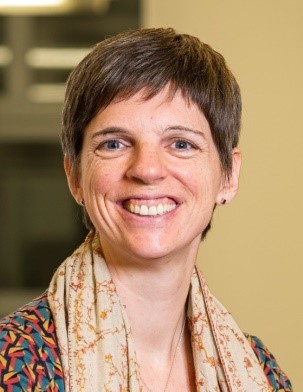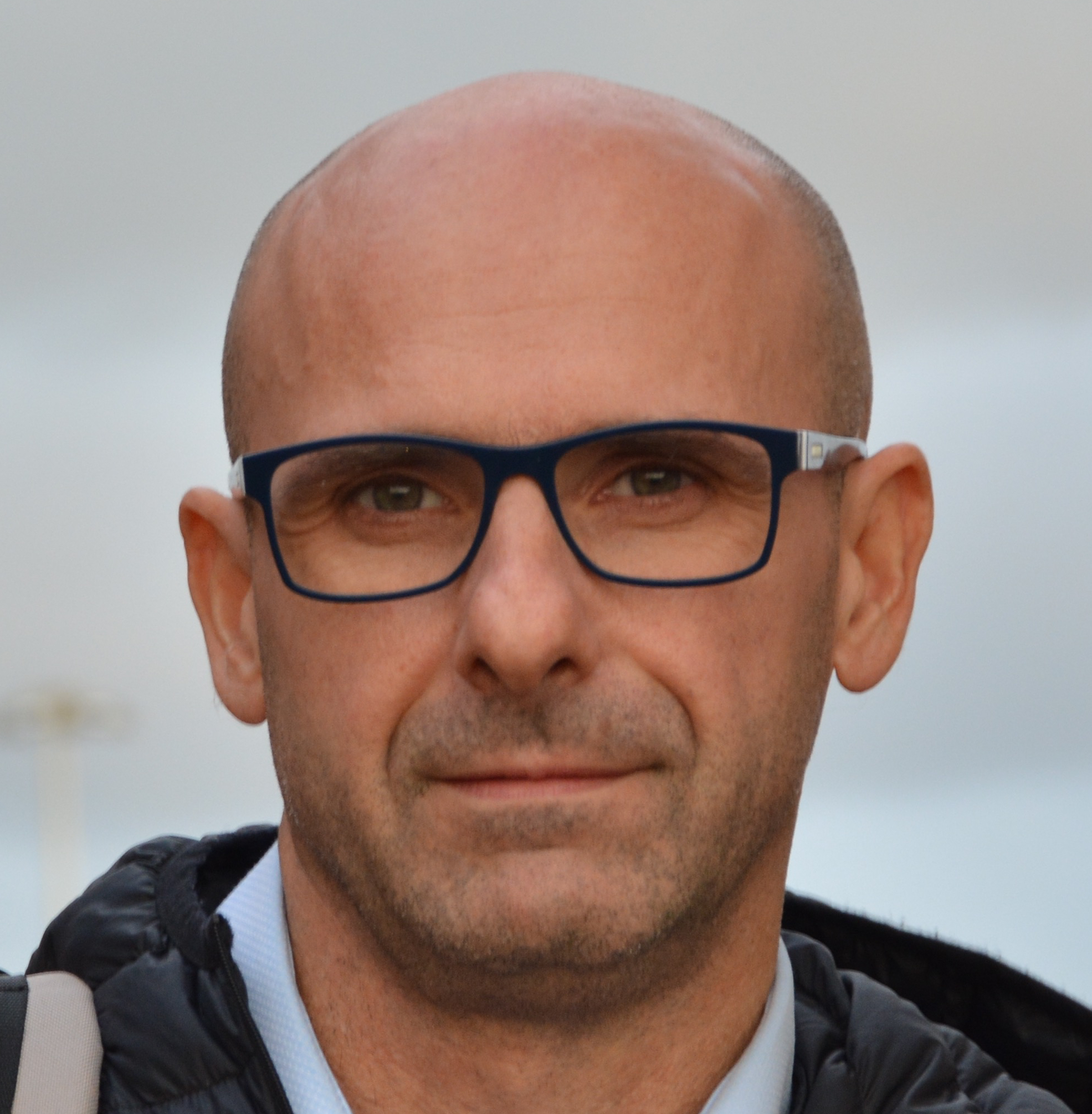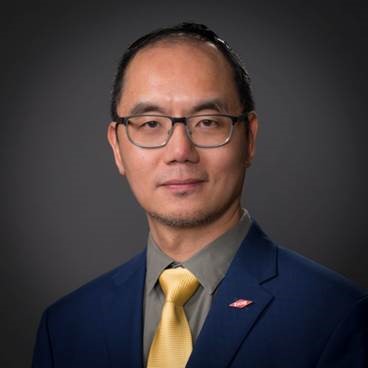Plenary Speaker - Prof. Ulrike Krewer
 Ulrike Krewer Dr.-Ing. is a Full Professor and Head of the Institute for Applied Materials – Electrochemical Technologies at Karlsruhe Institute of Technology (KIT), Germany. She received a PhD in Process Engineering from University/Max Planck Institute Magdeburg. After researching in Samsung (Korea) and an Assistant Professorship, she became Full Professor for Energy and Process Systems Engineering at TU Braunschweig in 2012, and moved to her current position KIT in 2020. With more than 20 years of research expertise in electrochemical energy technologies, she and her team contribute(d) to advancing established technologies, such as Li-ion batteries and PEM electrolysis, as well as exploratory ones such as Li/Na-metal batteries and CO2 electrolysis. Model-based and dynamic analysis of processes at electrodes allows her to reveal performance limiting steps and the (degradation) state of cells and electrodes, and to propose improvements.
Ulrike Krewer Dr.-Ing. is a Full Professor and Head of the Institute for Applied Materials – Electrochemical Technologies at Karlsruhe Institute of Technology (KIT), Germany. She received a PhD in Process Engineering from University/Max Planck Institute Magdeburg. After researching in Samsung (Korea) and an Assistant Professorship, she became Full Professor for Energy and Process Systems Engineering at TU Braunschweig in 2012, and moved to her current position KIT in 2020. With more than 20 years of research expertise in electrochemical energy technologies, she and her team contribute(d) to advancing established technologies, such as Li-ion batteries and PEM electrolysis, as well as exploratory ones such as Li/Na-metal batteries and CO2 electrolysis. Model-based and dynamic analysis of processes at electrodes allows her to reveal performance limiting steps and the (degradation) state of cells and electrodes, and to propose improvements.
Model-assisted Analysis and Design of Electrochemical Processes
Professor Ulrike Krewer Dr.-Ing.ulrike krewer@kit edu
Institute for Applied Materials - Electrochemical Technologies (IAM-ET), Karlsruhe Institute of Technology, Germany
Abstract: Electrochemical technologies offer efficient and dynamic storage of electrical energy in batteries or – via electrolysis – in hydrogen. In addition, power-to-chemicals technologies, such as electrochemical CO2 conversion or production of expensive fine chemicals, promise a deep energy transition of the chemical industry. Almost all new electrochemical technologies, but also established ones, suffer from performance losses due to a lack of quantitative insight into processes in the cells. Modelling tools at higher levels are already well established and predictive, when it comes to heat and mass transfer, as these phenomena are widespread in (chemical) engineering. They struggle, however, to reproduce or predict the electrochemical behaviour of electrodes.
This talk covers established and upcoming electrochemical energy and power-to-chemical technologies, their application and state of development. The complexity and challenges of the technologies at electrode level are complemented by strategies how to formulate and parameterise suitable models. The models are then used to give insight into the many unmeasurable processes or states, and for virtual design of better catalysts, electrodes, cells or operating conditions.
Plenary Speaker - Prof. Gabriele Pannocchia
 Gabriele Pannocchia received a Ph.D. in Chemical Engineering from the University of Pisa (Italy) in 2002, where he has been a Full Professor since 2020. Since 2022, Dr. Pannocchia has been Head of the School of Engineering of the University of Pisa.
He held a Visiting Associate position at the University of Wisconsin - Madison (WI, USA) in 2000/2001 and in 2008. Dr. Pannocchia is the author of about 150 papers in international journals, book chapters, and proceedings of international conferences.
Dr. Pannocchia is Senior Editor for the Journal of Process Control, served as Associate Editor of Automatica, and is Chair of the IFAC TC 2.4 (Optimal Control). Dr. Pannocchia was IPC co-chair of the IFAC Symposium DYCOPS 2013 held in Mumbai (India), Area Co-Chair/Associate Editor in IFAC DYCOPS 2016, IFAC World Congress 2017, IFAC NMPC 2018, UK Control 2018, IFAC World Congress 2020.
He has been a plenary speaker at the 4th IEEE Colombian Conference on Automatic Control, at the 24th International Conference on Process Control (Slovakia), and a keynote speaker at several international congresses (IFAC DYCOPS 2010, IFAC NMPC 2015, IFAC DYCOPS 2016, IFAC ADCHEM 2018).
Dr. Pannocchia was the NOC Chair of IFAC ADCHEM 2021 and IPC Chair of IFAC NMPC 2021.
His research interests include model predictive control systems, process simulation and optimization, numerical optimization, multivariable systems identification, performance monitoring, and industrial implementations of advanced control systems.
Gabriele Pannocchia received a Ph.D. in Chemical Engineering from the University of Pisa (Italy) in 2002, where he has been a Full Professor since 2020. Since 2022, Dr. Pannocchia has been Head of the School of Engineering of the University of Pisa.
He held a Visiting Associate position at the University of Wisconsin - Madison (WI, USA) in 2000/2001 and in 2008. Dr. Pannocchia is the author of about 150 papers in international journals, book chapters, and proceedings of international conferences.
Dr. Pannocchia is Senior Editor for the Journal of Process Control, served as Associate Editor of Automatica, and is Chair of the IFAC TC 2.4 (Optimal Control). Dr. Pannocchia was IPC co-chair of the IFAC Symposium DYCOPS 2013 held in Mumbai (India), Area Co-Chair/Associate Editor in IFAC DYCOPS 2016, IFAC World Congress 2017, IFAC NMPC 2018, UK Control 2018, IFAC World Congress 2020.
He has been a plenary speaker at the 4th IEEE Colombian Conference on Automatic Control, at the 24th International Conference on Process Control (Slovakia), and a keynote speaker at several international congresses (IFAC DYCOPS 2010, IFAC NMPC 2015, IFAC DYCOPS 2016, IFAC ADCHEM 2018).
Dr. Pannocchia was the NOC Chair of IFAC ADCHEM 2021 and IPC Chair of IFAC NMPC 2021.
His research interests include model predictive control systems, process simulation and optimization, numerical optimization, multivariable systems identification, performance monitoring, and industrial implementations of advanced control systems.
An ongoing journey toward model-based control and optimization in the presence of uncertainties
Prof. Gabriele Pannocchiagabriele.pannocchia@unipi.it
Department of Civil and Industrial Engineering, University of Pisa, Italy
Abstract: This plenary talk addresses the general objective of how to control and optimize a process system based on an available model which, in general, describes the actual process behavior in an approximate way. The presence of systematic uncertainties, such as gain errors, poses challenges to model-based control and optimization systems so that without adequate compensation strategies there is permanently suboptimal behavior, such as offset. The talk is meant to guide the audience through the design principles of Model Predictive Control (MPC) systems to cope with the presence of a structural mismatch between the actual plant and the MPC model. The general goal is to asymptotically reach the optimal behavior for the actual unknown plant.
The talk will be structured into two main parts. We start from the case of tracking, linear and nonlinear, MPC to build a general algorithm framework that guarantees offset-free tracking of piece-wise constant set-points in the outputs. To this aim, the nominal model is augmented with integrating states, referred to as “disturbances”, and a combined state and disturbance observer is consequently designed. We analyze the requirements and opportunities of this disturbance observer and discuss how other approaches, commonly thought to be different, are indeed particular cases of this general approach. In the second part, we focus attention on so-called economic MPC formulations, in which the cost function is not positive-definite around the optimal equilibrium. For this novel class of MPC systems, we present the recent results on offset-free design which includes, in addition to an augmented model as in tracking MPC, a suitable first-order modifier necessary to achieve matching of the necessary conditions of optimality. Computation of such modifiers requires, in principle, knowledge of plant gradient information, and therefore we discuss implementation strategies based on available input-output measurements only. These offset-free economic MPC algorithms are closely related to Real-Time Optimization methods, and hence the necessary lines of conjunction will be drawn.
Several examples of process control systems are presented as case studies to strengthen the main founding concepts and the recommended design practices. We conclude the lecture by sketching future research directions and open problems.
Plenary Speaker - Dr. Leo Chiang
 Leo Chiang is a Senior Research & Development Digital Fellow at Dow Core R&D. He has a broad research interest in emerging AI and Data Science approaches and his grand vision is to lead the industry to achieve AI at scale. Leo is on a mission to improve data acumen for workforce at all levels at Dow; he co-developed data science training program and championed many programs and activities to foster cross functional collaboration. Leo is proactive in working with universities to support data science education in chemical engineering and the broader STEM community.Leo has a B.S. degree from University of Wisconsin at Madison and M.S. and Ph.D. degrees from the University of Illinois at Urbana-Champaign, all in Chemical Engineering. Leo has co-authored 2 books, over 60 externally refereed journal/proceedings papers and has given over 140 conference presentations and university lectures.
Leo Chiang is a Senior Research & Development Digital Fellow at Dow Core R&D. He has a broad research interest in emerging AI and Data Science approaches and his grand vision is to lead the industry to achieve AI at scale. Leo is on a mission to improve data acumen for workforce at all levels at Dow; he co-developed data science training program and championed many programs and activities to foster cross functional collaboration. Leo is proactive in working with universities to support data science education in chemical engineering and the broader STEM community.Leo has a B.S. degree from University of Wisconsin at Madison and M.S. and Ph.D. degrees from the University of Illinois at Urbana-Champaign, all in Chemical Engineering. Leo has co-authored 2 books, over 60 externally refereed journal/proceedings papers and has given over 140 conference presentations and university lectures.
Leo is a Fellow of American Institute of Chemical Engineers (AIChE) and has served as 2014-2016 Computing and Systems Technology (CAST) director, 2016 CAST 10E programming chair, 2017-2018 spring meeting program chair (MPC), and 2019-2022 Executive Board of the Program Committee (EBPC). Leo was instrumental in setting up the Big Data Analytics Topical Conference (2015 to 2017) and Industry 4.0 Topical Conference (2018-2020) at the spring meeting. He was recognized by the AIChE with the 2016 Herbert Epstein Award for his programming leadership and 2016 Computing Practice Award for his world-class leadership in the development and application of methodologies in analytics for batch and continuous processes known as Big Data.
Leo is also active in the broader engineering and control community, he was elected to the National Academy of Engineering (NAE) in 2023 and recognized by American Automatic Control Council with the 2020 Control Engineering Practice Award. Leo currently serves as Computer Aids for Chemical Engineering (CACHE) trustee and 2023 Foundations of Process/Product Analytics and Machine learning (FOPAM) meeting program co-chair.
Advances and Opportunities of AI in Process Industries
Dr. Leo ChiangResearch and Development, Dow, United States
Abstract: To enhance safety, reliability, and productivity of industrial processes and to accelerate materials discovery, artificial intelligence (AI) and machine learning techniques have been widely used in process industries for many decades. In the current Industry 4.0 and digital era, AI propels advancement in a wide range of applications including image analytics, Natural language process (NLP), deep learning, reinforcement learning, hybrid modeling, and real-time analytics.
As more AI successes are demonstrated in process industries, there is a growing misconception that AI is to replace human decision. The talk will highlight the importance of Responsible/Trustworthy AI and show industrial examples on how humans and AI must be working in the loop. One aspect is to understand how to incorporate AI methods to assist humans to accelerate discovery in research and to make well-informed decisions in manufacturing operations. The other aspect is to allow humans to incorporate engineering and science domain knowledge to make AI methods smarter. This talk will conclude by highlighting future research direction, workforce development need, and how academia, vendors, and industries must collaborate to unlock more value with AI.